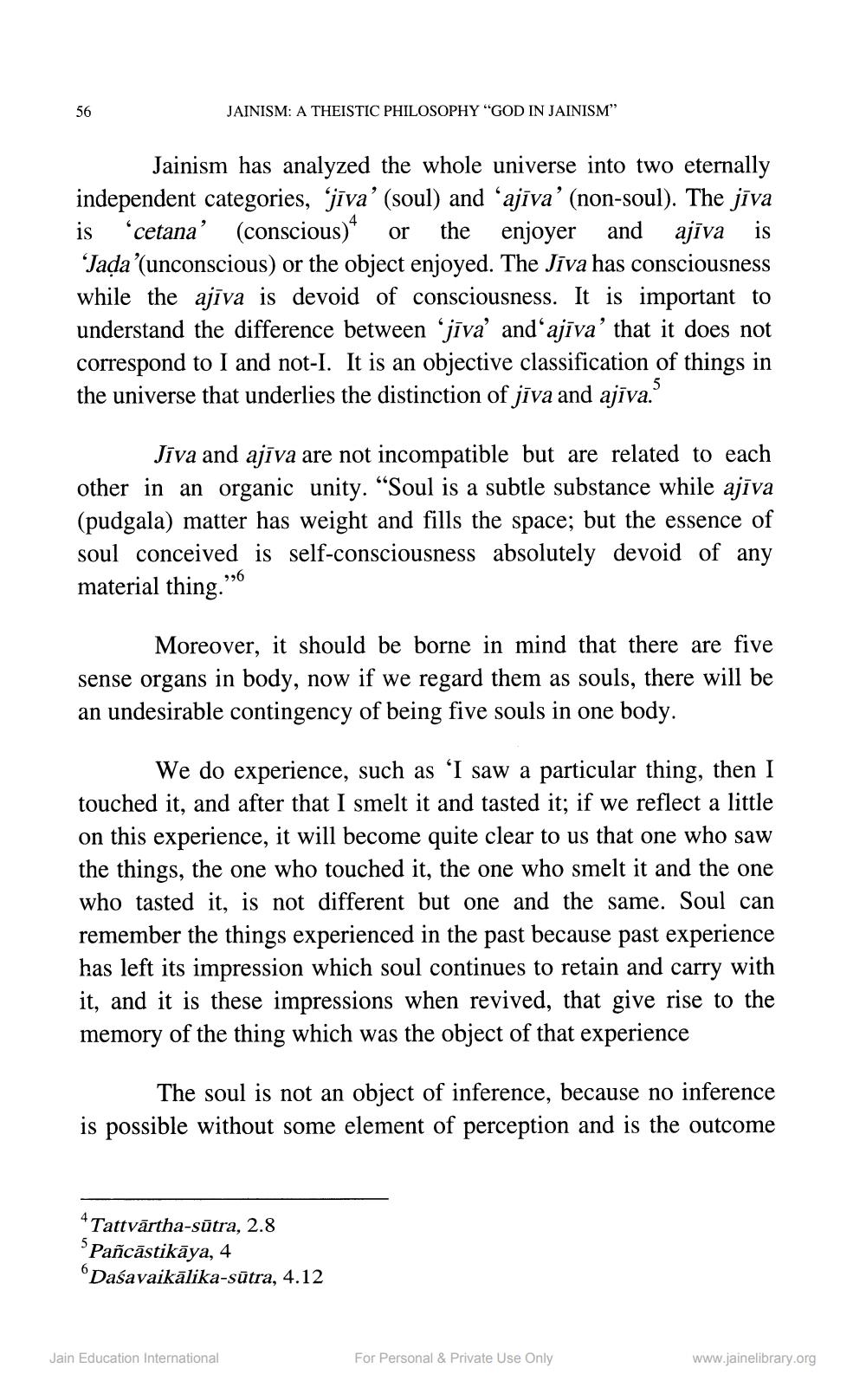________________
JAINISM: A THEISTIC PHILOSOPHY "GOD IN JAINISM"
Jainism has analyzed the whole universe into two eternally independent categories, jīva' (soul) and 'ajīva' (non-soul). The jīva is 'cetana' (conscious)* or the enjoyer and ajīva is
Jada’(unconscious) or the object enjoyed. The Jīva has consciousness while the ajīva is devoid of consciousness. It is important to understand the difference between “jīva' andʻ ajīva’ that it does not correspond to I and not-I. It is an objective classification of things in the universe that underlies the distinction of jīva and ajīva.'
Jīva and ajīva are not incompatible but are related to each other in an organic unity. “Soul is a subtle substance while ajīva (pudgala) matter has weight and fills the space; but the essence of soul conceived is self-consciousness absolutely devoid of any material thing."
Moreover, it should be borne in mind that there are five sense organs in body, now if we regard them as souls, there will be an undesirable contingency of being five souls in one body.
We do experience, such as “I saw a particular thing, then I touched it, and after that I smelt it and tasted it; if we reflect a little on this experience, it will become quite clear to us that one who saw the things, the one who touched it, the one who smelt it and the one who tasted it, is not different but one and the same. Soul can remember the things experienced in the past because past experience has left its impression which soul continues to retain and carry with it, and it is these impressions when revived, that give rise to the memory of the thing which was the object of that experience
The soul is not an object of inference, because no inference is possible without some element of perception and is the outcome
4Tattvārtha-sūtra, 2.8
Pañcāstikāya, 4 Daśavaikālika-sūtra, 4.12
Jain Education International
For Personal & Private Use Only
www.jainelibrary.org




